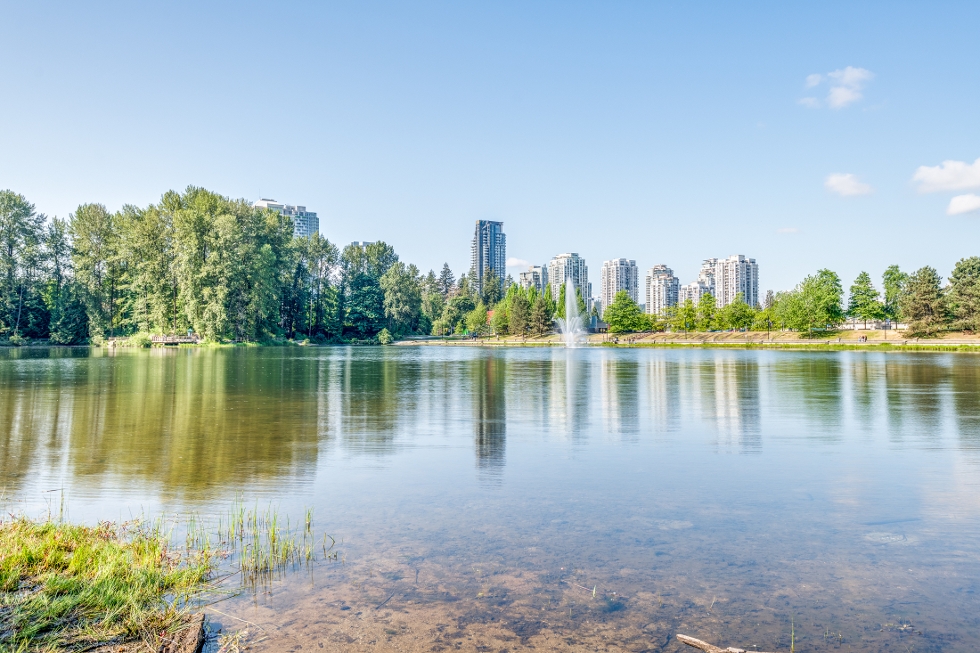Coquitlam Real Estate
Welcome to your ultimate guide to Coquitlam real estate! Whether you're dreaming of a cozy family home nestled near lush parks, a stylish condo close to vibrant city life, or the perfect townhouse balancing both, you've come to the right place. Coquitlam isn't just a great place to live - it's an exceptional community offering something special for everyone, from top-ranked schools and bustling shopping districts to scenic trails and exciting local events. As a leading Coquitlam REALTOR®, I understand that buying or selling your home is more than just a transaction - it's about building your future and discovering a community you'll love. This page provides up-to-date insights, expert advice, and personalized listings to help you confidently navigate the Coquitlam real estate market. Ready to explore all that Coquitlam has to offer? Dive in and find your dream home in one of Greater Vancouver’s most sought-after neighborhoods!

About Coquitlam, British Columbia
Nestled in the vibrant heart of British Columbia's Lower Mainland, Coquitlam combines the charm of suburban living with the conveniences of city life. Strategically located just a 30-minute drive east of downtown Vancouver - British Columbia’s largest city - and only 20 minutes north of the U.S. border, Coquitlam is ideally positioned for both residents and businesses alike. The city is uniquely bordered by the picturesque municipalities of Port Moody, Port Coquitlam, Burnaby and New Westminster, with the Fraser River to its south, Pitt River to its east and the scenic Coastal Mountains providing a stunning backdrop to the north.
Historically, Coquitlam experienced steady growth during the early to mid-20th century, notably accelerating after the opening of the Lougheed Highway in 1953, which significantly enhanced accessibility and spurred residential development. The city experienced a substantial growth boom in the mid-1970s, a trend that has continued steadily into the present day.
Today, Coquitlam is known for its diverse and appealing residential neighborhoods that offer a wide variety of housing options - from modern condos and townhouses to spacious family homes. At the heart of the city is the pedestrian-friendly Town Centre, a vibrant hub filled with shopping, dining, entertainment and essential services. Additionally, Coquitlam is home to thriving commercial zones, major industrial and business parks and impressive recreational amenities, including state-of-the-art community centers, extensive parks, trails and sports facilities.
Coquitlam’s real estate market remains dynamic, catering to various budgets and lifestyle preferences. Prospective buyers will find entry-level apartments, luxurious high-rise condos, comfortable townhomes and upscale detached houses. Prices can range widely, reflecting diverse housing stock - from affordable studio apartments ideal for first-time homebuyers or investors, to lavish, multi-million-dollar properties in prestigious neighborhoods like Westwood Plateau.
With its prime location, robust economy, excellent amenities and quality lifestyle offerings, Coquitlam continues to attract families, professionals and businesses, making it one of British Columbia’s most desirable cities to call home.
Coquitlam Schools
Coquitlam is served by School District 43, offering a comprehensive educational system with 9 secondary schools, 13 middle schools, and 45 elementary schools. You can find your specific school catchment area using the district's School Locator Tool.
Additionally, Coquitlam Town Centre hosts the Douglas College David Lam Campus, accommodating approximately 4,000 students, providing university transfer programs, career-training, and academic upgrading courses. Coquitlam also hosts several private post-secondary institutions and specialized training schools, further expanding educational opportunities for residents.
Coquitlam Transportation
Coquitlam features excellent transportation connections, including commuter rail service provided by the West Coast Express, with a major stop at Coquitlam Central Station connecting residents west to downtown Vancouver and east to Mission. Coquitlam is also integrated into the SkyTrain network via the Evergreen Line, completed in 2016, linking Coquitlam Town Centre to other municipalities and the broader Metro Vancouver transit system.
The city benefits from significant transportation infrastructure improvements, such as the Cape Horn Interchange on Highway 1—one of the busiest intersections providing essential access to Highway 1, the Port Mann Bridge, and Lougheed Highway. These enhancements significantly ease commuting and boost regional connectivity.
Coquitlam Demographics
- Population Share within Greater Vancouver: Coquitlam's population is approximately 148,625, making up around 5.7% of Greater Vancouver's total population.
- Age Distribution:
- Children and Youth (0-14 years): 15.1%
- Working Age (15-64 years): 68.6%
- Seniors (65+ years): 16.3%
- Median Age: 42.0 years
- Households with Children: Nearly half of Coquitlam households include children living at home.
- Homeownership: 69.3% of dwellings are owner-occupied.
- Languages Spoken at Home:
- English: 73.8%
- French: 0.3%
- Non-official languages: 26.0%
- Immigrant Population: 44.6% of the population are immigrants.
- Visible Minorities: 58.2% of residents identify as visible minorities.
- Education Levels: 44.5% hold a bachelor’s degree or higher.
- Labour Force Participation: Participation rate is 65.1%, with an unemployment rate of 6.1%.
- Commuting Patterns: Most residents commute to work, predominantly within the Metro Vancouver area.
Related Links
- City of Coquitlam: http://www.coquitlam.ca
Coquitlam Real Estate Market Report
If you are interested in knowing all the latest stats about the Coquitlam real estate market including: number of homes for sale, # of new listings, days on market, average price, average price per square foot, average sold price, list to sale price ratios and more, visit our Coquitlam real estate market report page.
Browe Coquitlam Real Estate
(A complete list of MLS® House Listings by neighbourhood)- Burke Mountain Homes (Burke Mountain Real Estate)
- Canyon Springs Homes
- Cape Horn Homes
- Central Coquitlam Homes
- Chineside Homes
- Coquitlam East Homes
- Coquitlam West Homes (Coquitlam West Real Estate)
- Eagle Ridge Homes
- Harbour Chines Homes
- Harbour Place Homes
- Hockaday Homes
- Maillardville Homes
- Meadow Brook Homes
- New Horizons Homes
- North Coquitlam Homes (North Coquitlam Real Estate)
- Park Ridge Estates Homes
- Ranch Park Homes (Ranch Park Real Estate)
- River Springs Homes
- Scott Creek Homes
- Summit View Homes
- Upper Eagle Ridge Homes
- Westwood Plateau Homes (Westwood Plateau Real Estate)
- Westwood Summit Homes
Featured Coquitlam Neighborhoods
Discover some of Coquitlam’s most charming and sought-after neighborhoods, each offering its unique blend of lifestyle, convenience, and community spirit. Whether you’re looking for scenic views, family-friendly vibes, or a nature-lover’s paradise, you’ll find your perfect home in these featured areas:
- Ranch Park
A peaceful enclave renowned for its spacious lots and breathtaking views. Ranch Park offers excellent schools, parks, and easy access to the West Coast Express, making it ideal for families and commuters alike. - Burke Mountain
Nestled among lush forests and scenic trails, Burke Mountain is one of Coquitlam’s newest and most vibrant neighborhoods. Perfect for those who appreciate outdoor adventures and modern comforts. - River Springs
This friendly, tight-knit community is beloved for its recreation center, outdoor pool, and picturesque surroundings. River Springs provides affordable homes within a peaceful, family-oriented environment. - Westwood Plateau
Known for its prestigious golf course, upscale homes, and panoramic views, Westwood Plateau offers an elegant lifestyle close to nature, shopping, and excellent schools.



